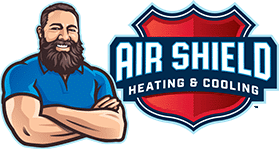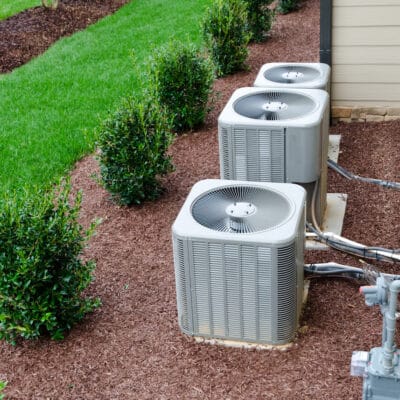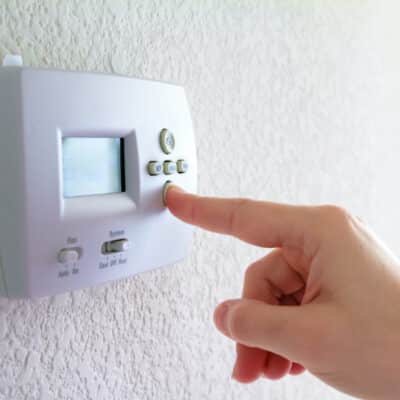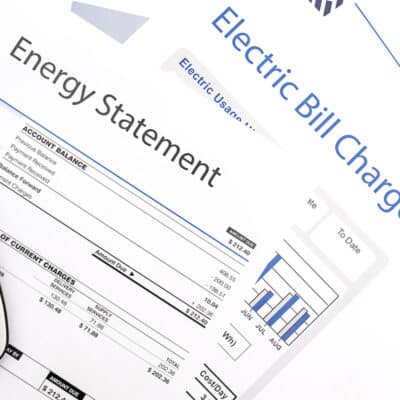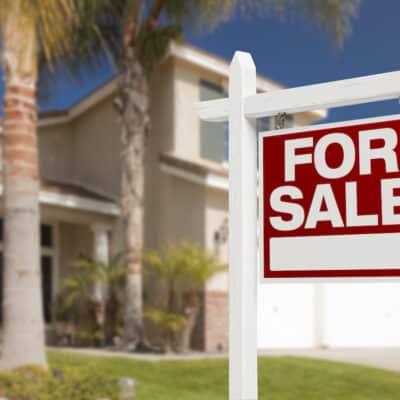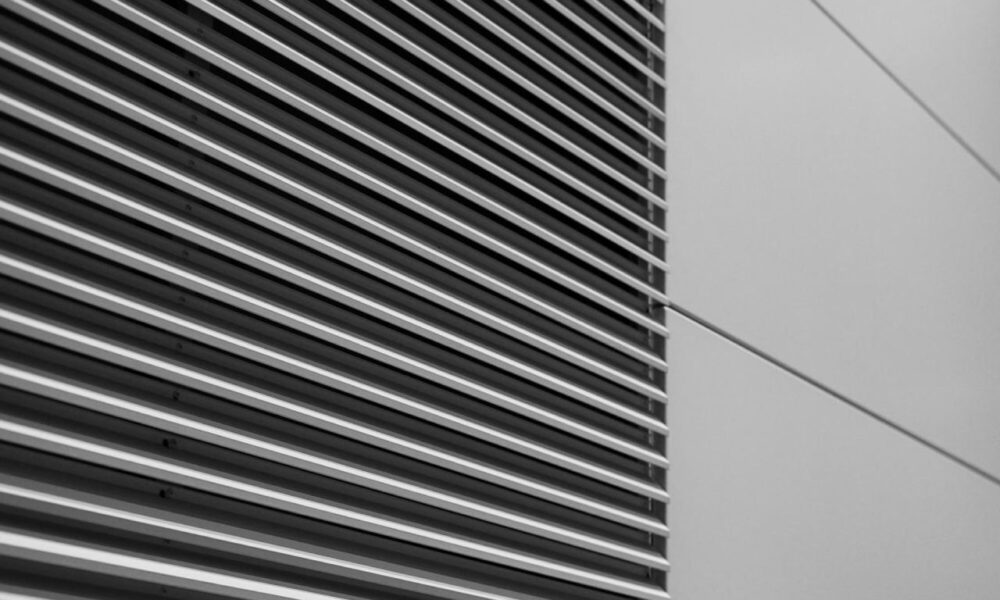
You’re not just replacing a machine: you’re making a serious home investment under pressure. Prices can swing wildly depending on the type of system, energy efficiency, your home’s layout, and that mysterious line item labeled “labor.”
Curious about what a new HVAC system really costs in 2025? We can help.
Read on to find out about how much a new HVAC system cost.
HVAC Cost Estimate: What You’re Really Paying For
HVAC system installation prices cover far more than just the equipment. It includes the planning and labor that go into making sure your system fits your home and performs reliably:
- Proper system sizing
- Ductwork adjustments
- Airflow calibration
These essential steps directly affect how well your new setup will heat or cool your space.
Installation is a major part of the price. A poorly installed system, even if it’s top-of-the-line, will struggle with efficiency, comfort, and lifespan and could even cause problems for home heating and cooling costs. Experienced technicians assess insulation, room layout, and ventilation needs to get everything running at peak performance. That attention to detail often makes the difference between a system that lasts a decade and one that fails in a few years.
What Affects HVAC System Cost?
One of the biggest price drivers is the size of your home and how much heating or cooling power it requires. Larger spaces or homes with open layouts typically need higher-capacity systems, which can increase both equipment and installation costs.
The type of system you choose also plays a role. Central air systems, ductless mini-splits, heat pumps, and hybrid setups each have different price ranges, install requirements, and energy efficiency ratings. Higher-efficiency systems often cost more upfront but can reduce long-term utility expenses, especially in regions with extreme temperatures.
Your existing infrastructure matters, too. If your ductwork is outdated, leaky, or incorrectly sized, it may need to be repaired or replaced before a new system can operate properly.
- Electrical upgrades
- Permit fees
- System relocation
- Asbestos or mold remediation if discovered during the install
- Access issues that require extra labor, like tight crawlspaces or attic work
Can also add to the final total. In homes without existing ductwork, installing a full central system may not be the most cost-effective choice at all.
Replacement vs. Repairs
It’s a question most homeowners face at some point: should you repair your aging HVAC system one more time, or bite the bullet and replace it entirely? The answer comes down to cost-efficiency, system age, and overall performance. If your unit is nearing the end of its expected lifespan (typically 10 to 15 years) continuing to pour money into repairs may be a short-term fix for a long-term problem.
Frequent breakdowns are a red flag. If you’re calling a technician more than once a season, your system is likely on borrowed time. Even if the fixes seem minor, they can add up quickly in both cost and inconvenience. And if your energy bills keep climbing despite routine maintenance, your HVAC system may be working harder than it should, using more energy to deliver less comfort.
Repairs make sense when the issue is isolated, the system is still relatively new, and the cost to fix it is low compared to the value of the equipment. But if repairs are covering up deeper issues like poor airflow, inconsistent temperatures, or loud operation, it may be time to consider a full replacement.
Timing Things Right
The timing of your HVAC upgrade can significantly impact everything from costs to convenience. Scheduling your installation during peak seasons—typically summer and winter—can lead to:
- Longer wait times for appointments
- Increased labor demand and potentially higher rates
- Fewer opportunities for discounts or promotional offers
- More competition for top-rated technicians and installers
- Delays in obtaining specific parts or equipment due to limited supply
The off-season, typically spring and fall, is when many HVAC contractors have more flexibility in their schedules and may offer lower rates or special pricing on equipment.
It’s also a smart time to upgrade because you’re not relying heavily on your system to keep your home comfortable during those milder months. Replacing your system when you don’t urgently need it gives you more breathing room to make decisions, review options, and avoid the stress of an emergency install.
Choosing The Right HVAC Installers
No matter how advanced the equipment is, your HVAC system is only as good as the team installing it. Poor installation leads to:
- Uneven airflow
- System strain
- Lower efficiency
- Inconsistent humidity levels
- Frequent cycling that drives up utility bills
- Shortened equipment lifespan
Issues that can surface within months of a new install and cost you far more over time. That’s why choosing the right installer is just as important as selecting the right unit.
Look for licensed, insured professionals with a strong track record in your area. Reliable contractors won’t rush the process. They’ll inspect your current system, assess your home’s layout, and perform a proper load calculation to ensure the new equipment is sized correctly. Oversized or undersized systems are a common mistake in quick installs and often lead to frequent cycling, uncomfortable temperature swings, and premature wear.
Ask about warranties, service guarantees, and post-installation support. A trustworthy HVAC company will stand behind its work and clearly outline what’s covered and for how long. They’ll also explain your system’s features, show you how to maintain it, and be available if questions come up down the line.
Reputation matters. Read reviews, ask for referrals, and don’t hesitate to get multiple quotes, not just to compare price but also to see how different companies approach your project.
How Much for a New HVAC System? Start Shopping
How much for a new HVAC system? It can depend. Now that you have the right information, you can make a purchase that makes sense for you.
Get expert guidance and upfront pricing from the trusted team at Air Shield Heating & Cooling. As a locally owned Comfortmaker Elite Dealer, we combine precision installations, energy-efficient systems, and honest recommendations tailored to your home and budget.
Whether you need a full system upgrade or just want to explore your options, we make it easy: with free estimates, same-day service when available, and 24/7 emergency support. Contact us to learn more.

